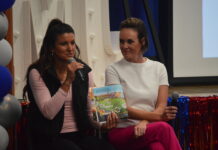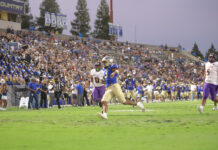Clovis doctor and public servant, Dr. Wilbur A. Lose, 1911-2002, was born in Los Angeles and graduated from Hollywood High School where he went to school with the “stars”. He actually stuck the braids of future super star/swimmer Esther Williams in the school desk ink well. He worked as an extra in movies and knew a few of the “Our Gang” kids.
He graduated from the Los Angeles College of Osteopathic Physicians and Surgeons in 1938. Osteopathic medicine was founded in 1892 by Andrew Taylor Still as a protest against the established medical system. After years of struggle, they were recognized as physicians and surgeons and granted a medical degree in 1966.
Wilbur recalled being very poor and eating popcorn and oatmeal during his college years. He became a night clerk in a mortuary and received a $300 commission for selling a coffin. Those funds paid his college fees.
It is believed that Dr. Lose delivered 20,000 babies during his practice. At times his fee would be paid in eggs, chickens or Christmas trees and sometimes not at all. He was a “volunteer doctor” at Clovis High for ten years and at Scout camps.
Wilbur met his wife Alice (an RN at the Veteran’s Hospital in Palo Alto) on a blind date. They were married on July 14, 1939. Wilbur had arrived in Fresno in 1938. He was employed by Dr. Clarence Rude to take night calls. Rude’s office was in the ten stories Helm building. Dr. Lose moved to Friant in 1939 to become their “Dam Doctor”.
He recalled Friant as a boom town that boasted a theater and dime store. His office was at the new Friant Theatre building. In 1940, he treated a back injury and charged $2 for the office call and $2 for the examination and disposition. Occasionally he would be paid in gold dust.
The couple would relocate to Clovis in 1941. They rented a large home at 311 Pollasky (now La Posada restaurant) and remodeled it into office and living quarters.
In 1942 he became a member of the Salvation Army Service Extension Welfare Committee. His job was described: “He delivered groceries as well as babies, provided shoes as well as shots, repaired window as well as broken bones, prevented evictions as well as disease, treated broken hearts as well as aching bodies.”
On May 8, 1944, Dr. Lose established the Sierra Vista Hospital at the historic 1902 Hoblitt Hotel (northwest corner of Fourth and Pollasky in Old Town). His maternity hospital license provided for a capacity of three beds.
Dr. Lose’s agreement with the California State Department of Public Health granted a per diem rate of $7 that would pay for all services provided by the hospital. One of his claims ($9.78) was denied as being excessive. He closed the hospital in 1948 (retained his office there) and joined six doctors who established the Sequoia Hospital in Fresno.
Alice and Wilbur joined the Peace Corps in 1969 and served two years in Micronesia where Lose provided health care for over 100 Peace Corps volunteers that were located within a radius of 500 miles. Alice and Wilbur lived in an infested termite home in Ponape. Most homes were built over water to keep them cooler and to save precious land for farming.
The island receives 400 inches of rain each year. A period of five days without rain is considered a drought. There were nine languages spoken and Dr. Lose’s average “house call” would require eight days of travel. He became a local hero when he massaged a tumor of a queen of one of the islands. It disappeared and he was viewed as a miracle healer.
After returning to Clovis, Dr. Lose helped open health clinics in Parlier, Orange Cove and Five Points. He also worked for the Central Valley Indian Health Center and the family planning division of the Fresno County Health Department.
Alice and Wilbur, in addition to their own four children (Martha, John, David and Tina) were foster parents to 37 children. Wilbur was an active member of the Clovis Methodist Church for 62 years. He would organize and lead groups of Methodist youths on mountain camping trips. The couple would celebrate 58 years of marriage prior to her death in 1997.
They provided us a rich heritage.









